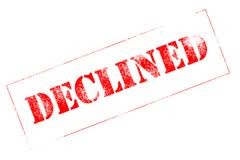They both have advantages and disadvantages; the one that is right for you depends on your preferences, future needs, and long-term goals. The primary difference is that a collateral charge mortgage registers the mortgage for up to 125% (TD) or 100% (ING) of the value of the home at closing, instead of the amount you need to close your transaction. The advantage behind this is that it makes it easier to tap into your equity for debt consolidation, renovations or to invest in property or investments easily and cost effectively, since you don’t need to visit a lawyer and pay legal fees. This flexibility is one of the primary advantages of collateral charge mortgages.
The downside comes at renewal. For consumers who want to keep their options open at maturity and have negotiating power with their lender, this isn’t the best product feature because collateral charge mortgages are difficult to transfer to another lender. That means if someone wants to change lenders for a better rate or product feature, they need to start from the beginning and pay new legal fees, which range from $500 to $1,000. Technically they can be assigned but lenders don’t accept the transfer. With regular standard charge mortgages, you can switch for free, although certain minor charges may apply. In addition, with a collateral charge, it could be difficult to get a second mortgage unless your home significantly appreciates in value.
The ability to take out equity is one of the primary features of Home Equity Lines of Credit, which are collateral charges for this reason. In these cases, clients want the ability to extract equity when they need it or as it becomes available. If you feel that there is a very good chance you will refinance to consolidate debt or to extract equity for a renovation or to invest, then a collateral charge mortgage may be a wise decision.
If you don’t believe that you’ll need to refinance or extract equity, then a regular standard charge mortgage will suit you fine, and it will give you the ability to move to another lender at renewal should you want to without incurring legal fees. In other words, it’s easier for you to keep your options open. If need to borrow more with a standard charge mortgage, you have the option of a second mortgage or line of credit.
Determining whether to get a standard or collateral charge mortgage adds another layer of complication for many homebuyers and owners. Obtaining the proper advice from a mortgage professional is your best choice to navigate this complex subject.
Source: Mortgage Superhero



